Lenovo ThinkStation P300 Workstation Review: Haswell plus Quadro
by Ian Cutress on November 4, 2014 10:00 AM EST- Posted in
- Systems
- Intel
- Lenovo
- Seagate
- Quadro
- Workstation
- Haswell
- desktops
- Enterprise
- NVIDIA
Professional Performance
Due to the market positioning of the ThinkStation P300 as an entry level workstation with a Quadro professional graphics card, it makes sense to compare the system with industry-standard benchmarks and the other entry level workstations we have previously tested where possible. Benchmarks in this instance come from SPECviewPerf 11, a well-known multi-software test, SYSMark from BAPCo that is used by several industries for comparison, and Linux-Bench for some more scientific and synthetic analysis.
SPECviewPerf 11
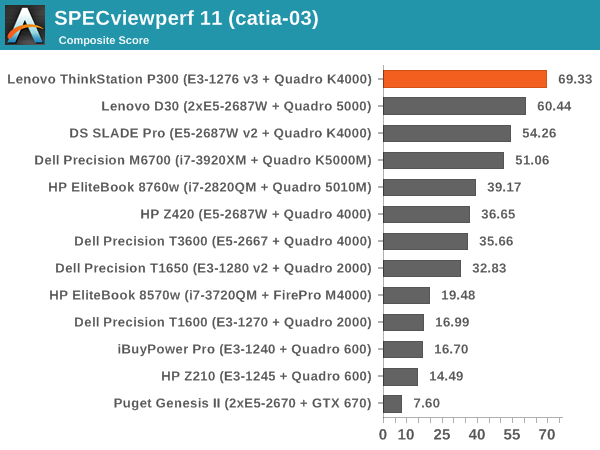
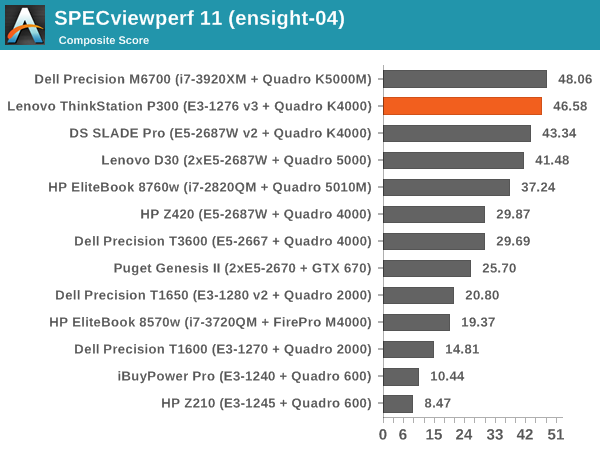
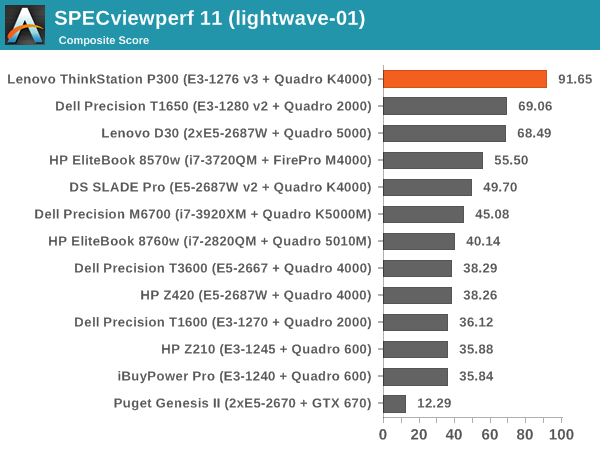
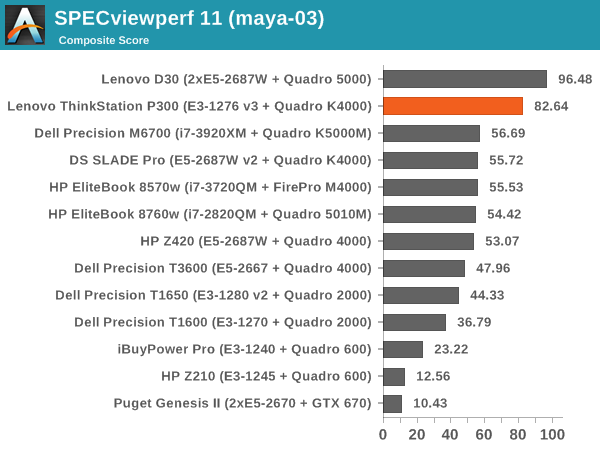
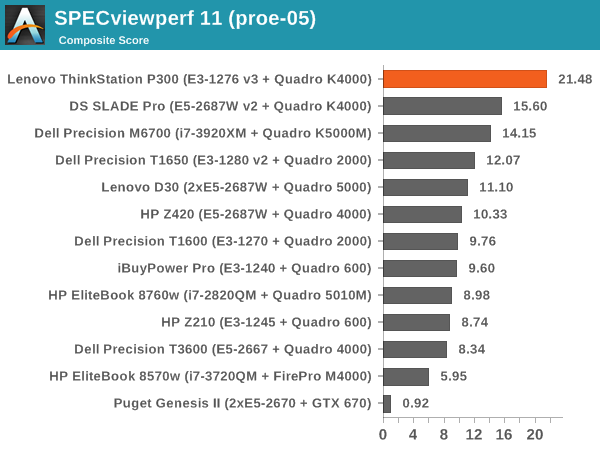
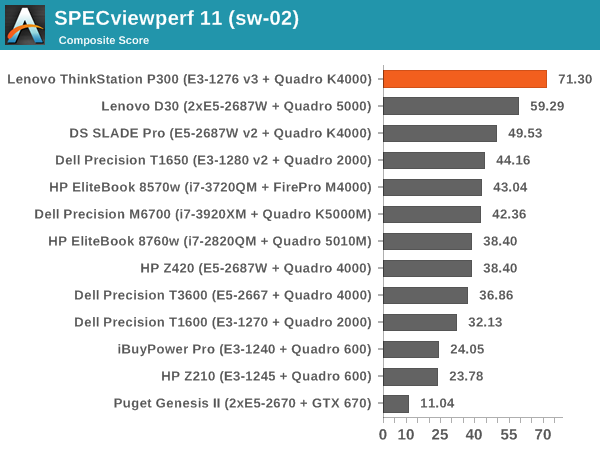
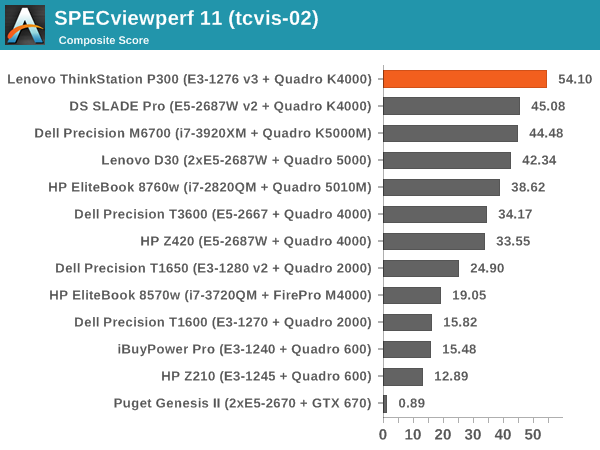
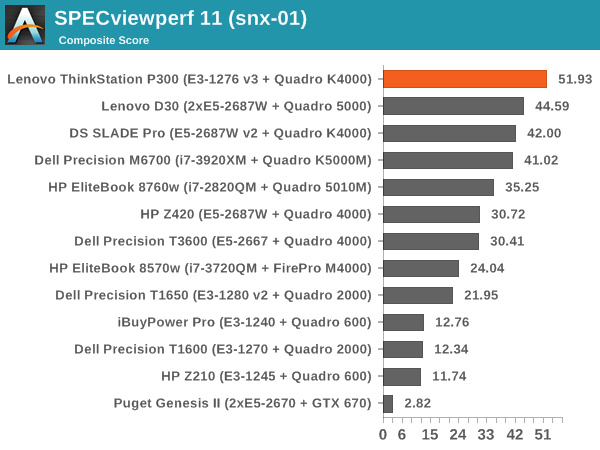
SPECviewperf performance for the P300 is great across the board.
SYSMark 2013
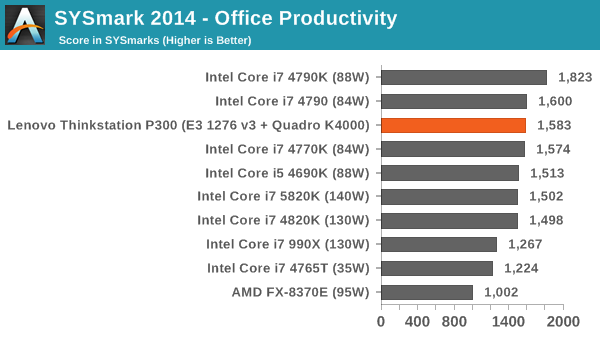
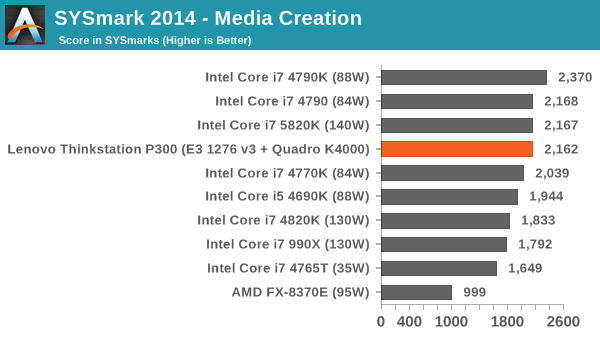
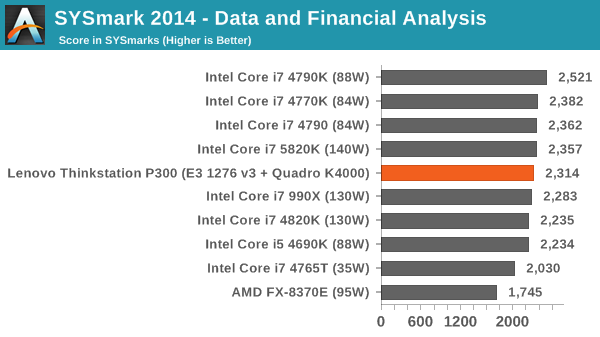
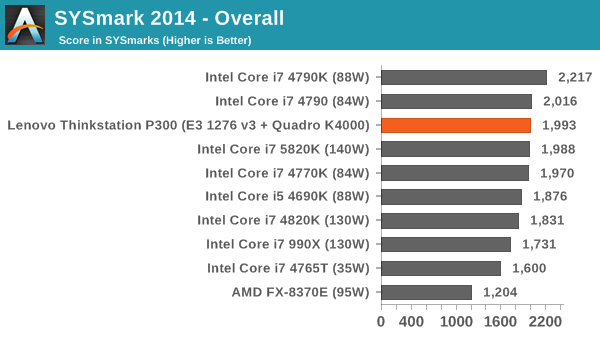
Linux-Bench: link
Built around several freely available benchmarks for Linux, Linux-Bench is a project spearheaded by Patrick at ServeTheHome to streamline about a dozen of these tests in a single neat package run via a set of three commands using an Ubuntu 11.04 LiveCD. These tests include fluid dynamics used by NASA, ray-tracing, OpenSSL, molecular modeling, and a scalable data structure server for web deployments. We run Linux-Bench and have chosen to report a select few of the tests that rely on CPU and DRAM speed.
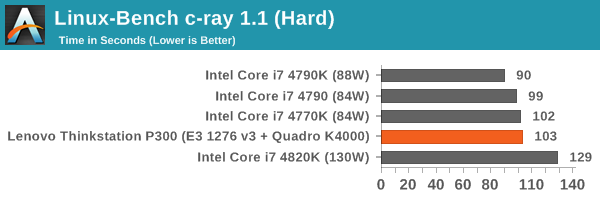
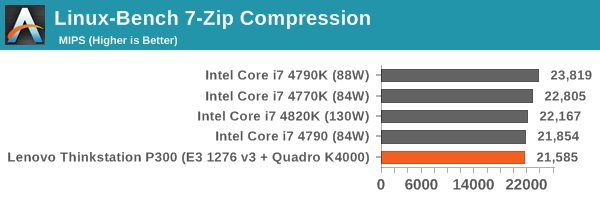
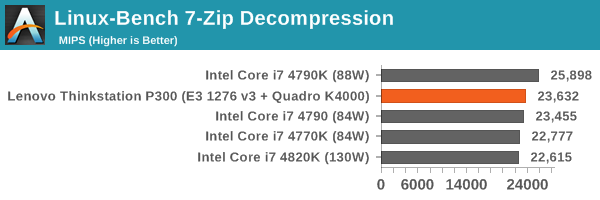
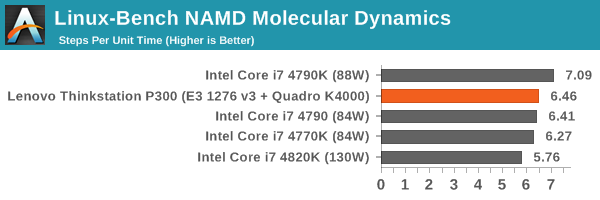
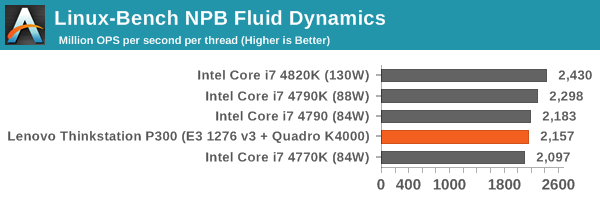
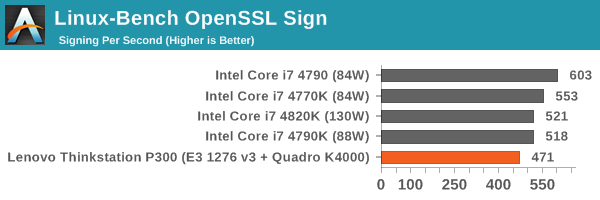
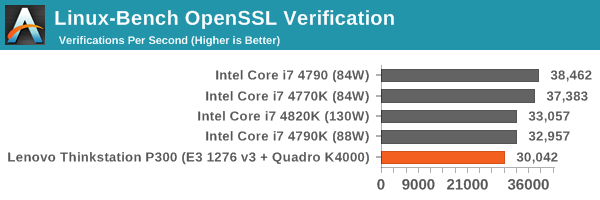
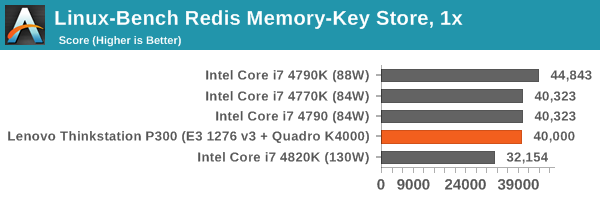
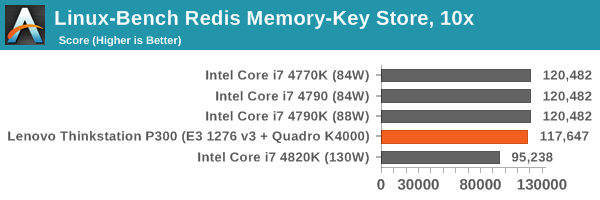
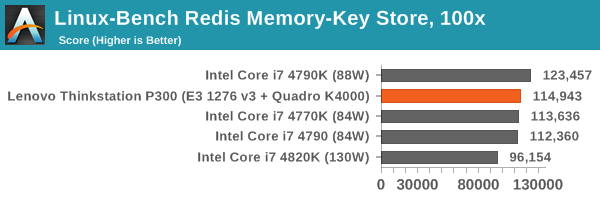










55 Comments
View All Comments
Pork@III - Tuesday, November 4, 2014 - link
Only 8GB RAM place on workstation PC in fall of 2014? Poorest IBM! Poor, poor, poor! :Dkissiel - Tuesday, November 4, 2014 - link
Lack of any amount flash storage is even more frightening...MadDuffy - Tuesday, November 4, 2014 - link
The SSHD storage is hybrid solid state and traditional.jimbo2779 - Tuesday, November 4, 2014 - link
The SSHD is hardly a patch on a real SSD store. I could not imagine running a WS on anything less than an SSD on SATA III.akula2 - Wednesday, November 5, 2014 - link
I use lot of Samsung 850 Pros and SanDisk 960GB ExtremePro SSDs. But this Mushkin Scorpion Deluxe 960GB PCIe SSD decimates those models (PCIe 2.0 x8 interface).Hence, I shall buy more for the upcoming X99 high-end; for ultra builds (Xeons), I'm pondering on Intel's NVMe enterprise solution (1.2TB SSD). Price is justified because it offers literally ultra performance.
Samus - Wednesday, November 5, 2014 - link
Sloppy. An elitedesk it is not.noelbonner - Tuesday, November 11, 2014 - link
Yes it's sloppy and poorly ranked in CONSUMER BASED rankings, see http://is.gd/L7YVjK for example.testbug00 - Tuesday, November 4, 2014 - link
which does about nothing. I have one. Unless they completely redesigned how they worked in the last 3 years (which, I doubt).At this point, personally, I just wish I could use the SSD in my hybrid drive to boot the OS and maybe 1-2 other things... But, nope =[
chizow - Tuesday, November 4, 2014 - link
I have an SSHD and while it is definitely not SSD speeds for sustained transfers or random I/O, it does a really nice job in two areas:1) Cached file information. Anyone dealing with video editing will appreciate this. The video info and previews load much faster than a traditional HDD due to the SSD cache.
2) Overall operating temps. Possibly because they don't need to spin up as often, my Seagate SSHD is cool to the touch while my retired WD Blacks could probably cause a burn.
They also have higher capacities available like a traditional HDD would making them pretty affordable overall.
Samus - Thursday, November 6, 2014 - link
I agree SSHD's are great alternatives to SSD's in certain machines. But they do not belong in laptops (honestly any mobile device should have no moving parts outside of a fan...for obvious durability reasons) and they don't belong in workstations where there is space for a SSD boot drive and a HDD storage drive.SSHD's make a lot more sense in home PC's where media storage is common and common HDD performance is a huge bottleneck. Many home users simply don't want to deal with two drives/partitions and most systems these days only have one drive bay, such as AIO's.